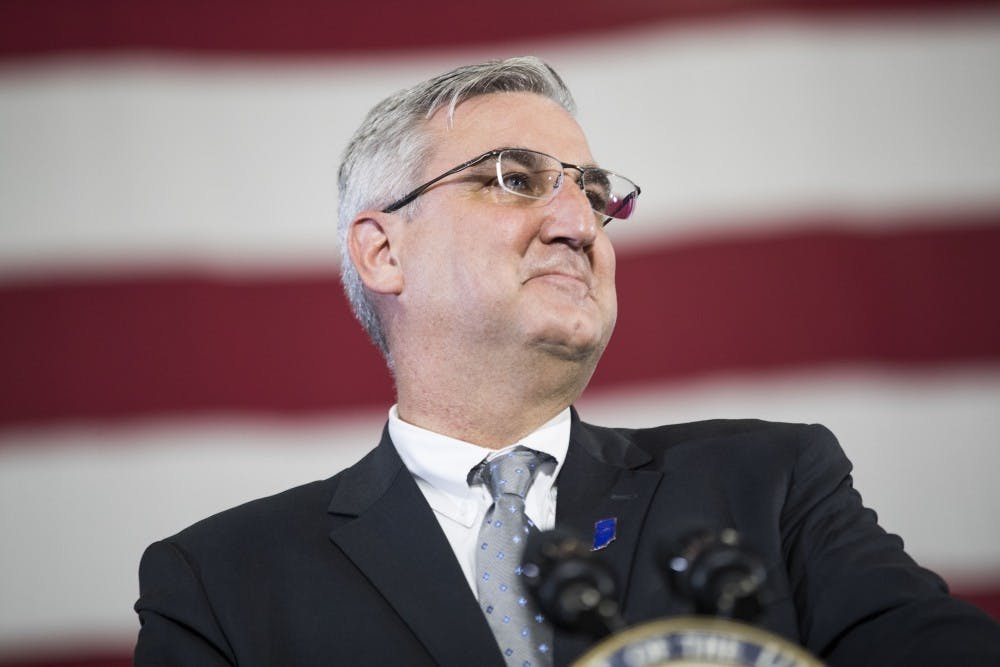The coronavirus being a global threat, but most COVID-19 responses in the U.S. are led by state and local governments.
A bipartisan group of Midwestern governors, including Indiana Gov. Eric Holcomb, announced Thursday they will be working together. Northeastern and western states have also formed coordinated response efforts.
State politics should not be overlooked. Governors’ choices to issue stay-at-home orders and work with other states have a tremendous influence on how the outcomes of the COVID-19 pandemic.
Ideally, state and local policies allow responses to be tailored to meet specific areas' needs, but in some areas, ideology and political expediency seem to be playing a bigger role than science.
Eight Republican governors have resisted implementing statewide stay-at-home orders. These states are showing signs of trouble, and that trouble is not going to stay within state lines.
Some of these states without stay-at-home orders could be transforming into coronavirus hot spots. There was a 53% increase in cases in Oklahoma, 60% in Arkansas, 74% in Nebraska, 82% in Iowa and 205% in South Dakota over the past week, according to Johns Hopkins University. These may be underestimates of the actual number of infections due to low levels of testing.
While these rural states are less densely populated than many others being hit the hardest, such as New York, these outbreaks can still lead to disaster in small communities.
The rest of the country is heavily dependent on agriculture and manufacturing located in the heartland. Inaction by governors in these states could lead to increased prices or widespread food shortages. In Iowa, for example, two Tyson food processing plants have been closed due to outbreaks that led to the deaths of at least two workers. If this becomes a trend, the whole country could face the consequences as food supplies run short.
Statewide orders are important because personal responsibility is not enough to keep people home.
California was the first state to implement a stay-at-home order on March 19, and it appears to be flattening the curve of infections. The number of daily cases has decreased, and the expected peak of the outbreak was moved two weeks earlier, according to models from the University of Washington's Institute for Health Metrics and Evaluation.
Governors are now deciding when they will lift the stay-at-home orders. President Donald Trump claime he would decide when the economy would reopen last Monday, only to walk back his statement the next day after constitutional experts warned that stay-at-home orders were under the states’ jurisdiction.
“The President has no formal legal authority to categorically override local or state shelter-in-place orders or to reopen schools and small businesses,” University of Texas law professor Stephen Vladeck tweeted.
Gov. Ron DeSantis announced Friday that beaches in Florida could begin to open with social distancing guidelines in place. Hundreds of people were at the beaches the next day, and photos of crowded beaches appeared on social media.
The Trump administration released guidelines Thursday for states to reopen their economies. The administration recommended that before this process begins, there should be a decline in COVID-19 cases over a two-week period, a testing program in place for high-risk health care workers and enough protective gear and supplies at the state level to treat patients.
The health and economies of neighboring states are closely intertwined. People might travel across state lines for work, visiting friends and family or shopping, which could potentially spread the coronavirus. It’s vital that states work together to make sure everyone is safe.
However, the federal government can’t make governors do this, just like governors can’t be forced to issue or lift stay-at-home orders. Many of the decisions that will arguably affect you the most are being made by your governor.
This demonstrates the importance of state elections.
Indiana is one of 11 states with gubernatorial elections this fall. COVID-19 will likely continue to play a major role in politics as concerns about a second wave are rising. This makes candidates like Dr. Woody Myers, the Democratic former Indiana state health commissioner, attractive because an understanding of the medical field will be crucial for governing in the foreseeable future.
It’s important to research candidates and vote in state elections, especially during a pandemic. The person elected governor will make decisions that could mean the difference between life and death for you or a loved one.
Allyson McBride (she/her) is a sophomore studying English and political science. She is the director of outreach and diversity for College Democrats at IU.






